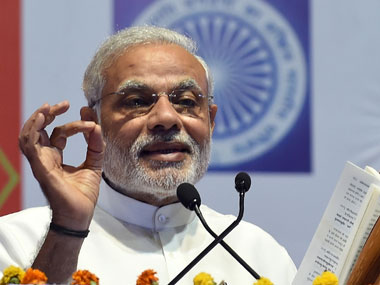India’s cheque book diplomacy is in full flow under the Modi government and the prime focus is on the country’s neighbours. In the newest of such cases, India has pledged $1 billion financial aid to Nepal towards recovery and reconstruction of the quake-hit Nepal. This will be in addition to India’s ongoing economic development and cooperation programme with Nepal, which amounts to another $ 1 billion over the next five years. Thus India’s total commitment to Nepal over the forthcoming five-year reconstruction period would be $ 2 billion. In his “pledging statement”, PK Misra, additional principal secretary to PM Modi, at International Conference on Nepal’s Reconstruction in Kathmandu on 25 June, the proposed Indian financial assistance to Nepal would focus on housing and public buildings, heritage sites, infrastructure development like roads, transport and power, agriculture, education, health and hospitals, and disaster risk mitigation. Misra elaborated on the trajectory and the objective of the Indian assistance to Nepal thus: “India’s developmental assistance programmes abroad have always been based on the priorities set by the recipient, partner country. In Nepal too, our support will be beneficiary-driven, combining region-based and sector-based approaches and ensuring transparency and accountability in aid delivery. We will also encourage private and voluntary participation along side governmental programmes. While we assist, we also look forward to learning and gaining valuable experience in reconstruction in our shared, Himalayan region. [caption id=“attachment_2313436” align=“alignleft” width=“380”]  Narendra Modi. AFP.[/caption] “Further, India, in recent years, has also managed a number of reconstruction programs of similar magnitude and complexity besides Gujarat earthquake. Based on these experiences, a range of implementation arrangements have been evolved, including legislative, technical and institutional models. We would be happy to share these models and extend technical support, which would be useful in the recovery process, as the contexts and characteristics of our communities are very similar.” The Post-Disaster Needs Assessment report estimates the total damages and losses to the tune of $ 7 billion and the reconstruction needs of $ 6. 69 billion. India has come forward like a model neighbor and its proposed financial assistance would take care of almost 15 per cent of Nepal’s needs for reconstruction in the post-quake phase. This is highly laudable to say the least. No other nation, including China, has loosened its purse strings to the quake-hit Nepal the way India has. In many ways, India is doing in Nepal what it did more than a decade ago in Afghanistan: winning friends among the common men and influencing people in the power corridors of the recipient nation. India’s Nepal gesture assumes all the more significance as India pumped in financial aid worth $67 million to Nepal during Operation Maitri and the Indian logistical assistance started pouring within six hours of the first tremors Nepal experienced. Significantly, this was India’s largest-ever disaster assistance abroad. India is deeply involved in many infrastructural projects in Nepal like Pancheshwar, Arun III and Upper Karnali Hydropower Projects and Nijgarh Airport and Kathmandu-Nijgarh Fast Track Road Projects, all of which are common-man centric. Once completed, these projects will create new avenues for Nepalese people’s livelihood, enhance the government revenue and contribute towards speedy post quake recovery and rehabilitation. The Indian approach is right and justified given the huge geo-political stakes that India has in its contiguous neighbourhood. Nepal, with which India shares a 1751-km-long porous border, is a fit case. The Modi government had recently extended a $2 billion line of credit to Bangladesh– the single largest financial assistance ever extended by India to any foreign country in the history of independent India. Before that PM Modi had announced one billion dollars assistance to Mongolia during his visit to that country recently, the first ever prime ministerial visit by India to Mongolia. Besides, India has just given a $100 million line of credit to Vietnam, another near abroad neighbor, to help that nation in its defence programme. Given the stellar support Myanmar extended to India for enabling an anti-terrorist military operation on its soil, Naypyitaw deserves a similar reward from India. One shouldn’t be surprised if the Modi government unveils a billion dollar package for Myanmar too at the next available opportune moment. After all, PM Modi’s cheque book diplomacy in near abroad is aimed at countering China in the long run!
India’s cheque book diplomacy is in full flow under the Modi government and the prime focus is on the country’s neighbours.
Advertisement
End of Article
Written by Rajeev Sharma
Consulting Editor, First Post. Strategic analyst. Political commentator. Twitter handle @Kishkindha. see more


)

)
)
)
)
)
)
)
)



